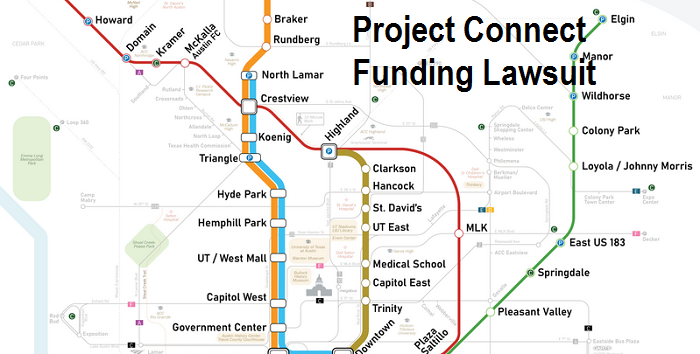The lawsuit over public salaries in Massachusetts began in response to what unions describe as repeated broken promises. Public employee unions contend that the state has not complied with legally binding contracts with wage increases and COLAs that were negotiated through collective bargaining and executed by both parties.
When the raises were later delayed or in some circumstances reduced, the unions decided to file a lawsuit. In late 2023, a number of unions, such as the Massachusetts Teachers Association (MTA), AFSCME, and Massachusetts Nurses Association (MNA) sued the Commonwealth of Massachusetts, alleging that the Commonwealth violated a number of labor contracts, as well as wage promises during and even prior to the COVID-19 pandemic.
This case proceeded rapidly through the system and was heard in Suffolk County Superior Court. In January 2025, the Court dismissed the Commonwealth’s motion to dismiss the case and permitted the case to proceed in its entirety, including a trial phase and indicated a high probable success for the unions.
How Did the Dispute Over Raises Begin?
The controversy started with a couple of public sector unions identifying discrepancies. They perceived a discrepancy between what was agreed to and what employees received after negotiated raises. Several unions came together including the Massachusetts Teachers Association (MTA), AFSCME and the Massachusetts Nurses Association (MNA).
Their contracts included the promised increase in salary. However, the state did not pay them the fully negotiated salary increases, and also postponed payments. The unions contended that these violations were in violation of Massachusetts General Laws Chapter 150E, which govern the statutory collective bargaining rights of public employees.
Why Do Unions Claim a Breach of Contract?
Unions argue that the agreements signed with the state are legally binding. These agreements included inflation-based raises. During 2021 to 2023, inflation surged past 12%. Yet, many workers saw little or no matching salary adjustment.
Workers say they upheld their side of the contract. They worked through pandemic stress, risking health and safety, and expected fair pay in return. The delay or denial of this pay forms the heart of the lawsuit.
What Legal Grounds Support the Lawsuit?
The primary legal basis is a breach of contract under Massachusetts employment law. The case also involves constitutional arguments. Article X of the Massachusetts Declaration of Rights protects against unfair wage practices.
Unions claim the delayed raises violate workers’ rights to due process and equitable compensation. They also cite the Cloutier v. City of Lowell (2011) case, which confirmed that economic hardship does not cancel a government’s contract obligations.
Who Are the Main Players in This Lawsuit?
- Massachusetts Teachers Association (MTA)
- Massachusetts Nurses Association (MNA)
- American Federation of State, County, and Municipal Employees (AFSCME)
- Commonwealth of Massachusetts
Each group represents thousands of workers. Their members include teachers, nurses, clerks, and emergency responders. Many of them worked on the frontlines during COVID-19.
What Role Does the State Government Play?
The Governor’s Office has responded cautiously. Officials acknowledged the delay in pay adjustments. They blamed budget constraints and post-COVID spending priorities. However, unions argue that the state had enough money. In 2023, Massachusetts recorded over $1 billion in budget surplus. Unions point to that as proof. They say the delay was not a financial necessity. Instead, it reflects poor fiscal planning and disregard for workers.
How Have the Courts Reacted So Far?
In January 2025, the Suffolk County Superior Court rejected the state’s motion to dismiss. As a result, the lawsuit will proceed to the discovery phase, where both parties will exchange internal documents, emails, and financial documents. Legal scholars agree that the court’s ruling at this early stage of the litigation will bolster the unions’ claims. The final verdict could affect Massachusetts and future public salary agreements across the U.S.
What Are the Broader Implications of the Case?
This lawsuit may set a major precedent. If the unions win, other states could face similar legal pressure. Governments would need to honor worker contracts more strictly. Additionally, it could influence future negotiations. Public workers might gain stronger leverage in collective bargaining. It may also impact how inflation adjustments are handled nationwide.
What Economic Conditions Add Pressure to the Case?
Between 2021 and 2023, inflation exceeded in Massachusetts. The cost of living rose across all sectors. Housing, food, and healthcare became more expensive. Workers argue that stagnant salaries created economic hardship. High inflation has worsened living conditions for public workers. Between 2021 and 2023:
- Rent rose by 18%
- Healthcare premiums increased by 12%
- Groceries went up by 16%
Many public workers saw a wage freeze or minimal raises during this time. This mismatch led to the current lawsuit over public salaries in Massachusetts.
Comparative Table: Inflation vs Salary Growth (2021–2023)
| Year | Avg Inflation (%) | Promised COLA (%) | Actual Raise (%) |
|---|---|---|---|
| 2021 | 4.7% | 3.5% | 2.0% |
| 2022 | 6.1% | 4.2% | 1.8% |
| 2023 | 3.4% | 4.0% | 1.5% |
This table highlights the wage suppression despite rising costs.
Meanwhile, the state reported budget surpluses. Critics say there is no excuse for skipping COLAs. They argue that Massachusetts could afford to pay workers more.
How Have Workers Reacted Publicly?
Public employee unions have held rallies and press conferences to draw attention to the broken promises. At these events, speakers emphasized these workers’ vital roles: Teachers kept schools running, nurses staffed overwhelmed hospitals, and emergency responders worked overtime. All ask why the state now hesitates to honor its commitments.
What Are the Political Ramifications?
The lawsuit has triggered political debates. Lawmakers on both sides have weighed in. Some support the unions and argue that the state must respect contracts. Others express concern about long-term budget impacts and warn that a court-ordered payout might hurt future spending. Yet, voters appear largely sympathetic to workers.
How Does This Case Connect to Constitutional Rights?
Union lawyers cite Article X of the Massachusetts Declaration of Rights, which guarantees fair compensation and legal protection in employment matters. They also argue that due process was denied. Delaying agreed-upon wages, they say, is a form of economic harm. The state has a legal duty to treat public workers justly.
What Do the Court Filings Reveal?
Court documents show detailed financial breakdowns, including timelines of wage negotiations and payment delays. Contracts submitted as evidence confirm the terms. The unions also provided inflation data, showing the growing gap between promised and actual pay. This data supports their economic hardship claims.
What Do the State’s Lawyers Argue in Defense?
The defense argues that fiscal reallocation was necessary. They claim emergency funds had to be redirected post-COVID. Their motion to dismiss argued that wage delays did not constitute a legal breach. However, the court rejected this. Judges noted that collective bargaining agreements carry legal weight. The case now continues.
Which Worker Groups Are Most Affected?
The lawsuit affects several key sectors:
- Education: Teachers and administrative staff
- Healthcare: Nurses and hospital workers
- Municipal Services: Clerks and public works
- Emergency Services: Firefighters and EMTs
Each of these groups claims they received less than what was promised. They also highlight the critical nature of their roles during the pandemic.
What Have News Outlets Reported?
Boston Globe
Described the lawsuit as a “reckoning” for state labor relations. Highlighted union unity and frontline worker stories.
WBUR
Focused on teacher salary shortfalls. Interviewed affected families and cited legal experts.
MassLive
Reported on the economic consequences. Connected wage gaps to housing instability.
State House News
Outlined the legal timeline. Offered procedural insights and reactions from lawmakers.
How Does This Case Compare to Other States?
Other states face similar issues. California, New York, and Illinois have seen union complaints. However, Massachusetts is among the first states where the court allowed complete proceedings.
Legal experts are watching this case closely. A union win could influence policy in other jurisdictions, and states may need to reassess how they manage public wage agreements.
What Are the Unions Asking the Court to Do?
The unions want:
- Full payment of all delayed wages
- Interest is added to missed payments.
- Formal acknowledgment of contract validity
- Policy changes to avoid future breaches
They argue these remedies will restore trust and fairness in state employment.
How Can This Case Affect Future Contracts?
If the unions win, future contracts may include stronger enforcement clauses. Unions could demand penalty terms for delays. States may hesitate to postpone payments again. Negotiations would shift in favor of workers. Contract compliance would become a top priority.
What Should the Public Know About the Case?
This case is not just about money. It’s about trust. Workers kept the state running during crises. Now, they seek fairness and legal protection. It also highlights how inflation affects real incomes. Many public workers say they cannot afford basic living costs. This case could drive public awareness and policy change.
What Happens Next in the Lawsuit?
The case now moves to discovery and trial preparation. Both sides will submit further evidence. Depositions and expert testimony are expected. A ruling may come later in 2025 or early 2026. The outcome will shape Massachusetts labor law for years.
Conclusion: Why Does the Massachusetts Public Salaries Lawsuit Matter?
The lawsuit over public salaries in Massachusetts reflects a deep conflict over fairness and fiscal responsibility. Unions claim the state violated binding agreements. They demand overdue wages and justice for essential workers. This case carries legal, economic, and moral weight. It challenges how states treat their workforce and raises questions about accountability, especially when budgets are in surplus.
As the lawsuit progresses, it may reshape collective bargaining across the country. Thousands of workers wait to see if the courts will side with justice.
Frequently Asked Questions (FAQs)
What is the lawsuit over public salaries in Massachusetts about?
The lawsuit involves public employee unions suing the Commonwealth for delaying or reducing agreed salary increases and COLAs promised in contracts.
Who filed the Massachusetts public employee salary lawsuit?
Unions like the Massachusetts Teachers Association (MTA), AFSCME, and the Massachusetts Nurses Association (MNA) jointly filed the case.
Why is the public worker raises lawsuit in MA gaining attention?
The case gained traction because it involves over 100,000 frontline workers and addresses contract violations during a time of surplus funding.
What does the lawsuit demand from the state?
Unions seek back pay, interest, recognition of contract validity, and reforms to prevent future breaches.
What legal arguments support the public sector pay dispute Massachusetts case?
Legal arguments include breach of contract, denial of due process, and violations under Article X of the Massachusetts Declaration of Rights.
What impact could the MA salary lawsuit 2025 have?
If unions win, it could set a precedent for other states and force governments to uphold wage agreements strictly.
How is inflation relevant to the lawsuit?
From 2021 to 2023, inflation exceeded 12%, but many workers received only 1.5% to 2% annual raises, worsening real income loss.
What did the Suffolk County court decide in early 2025?
The court allowed the lawsuit to proceed, rejecting the state’s motion to dismiss. The case is now in discovery.
How do citizens view the lawsuit?
Public sentiment favors the unions. A Boston Globe poll showed 63% of voters believe the state should honor its pay commitments.




